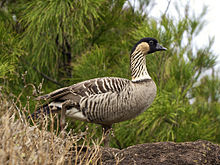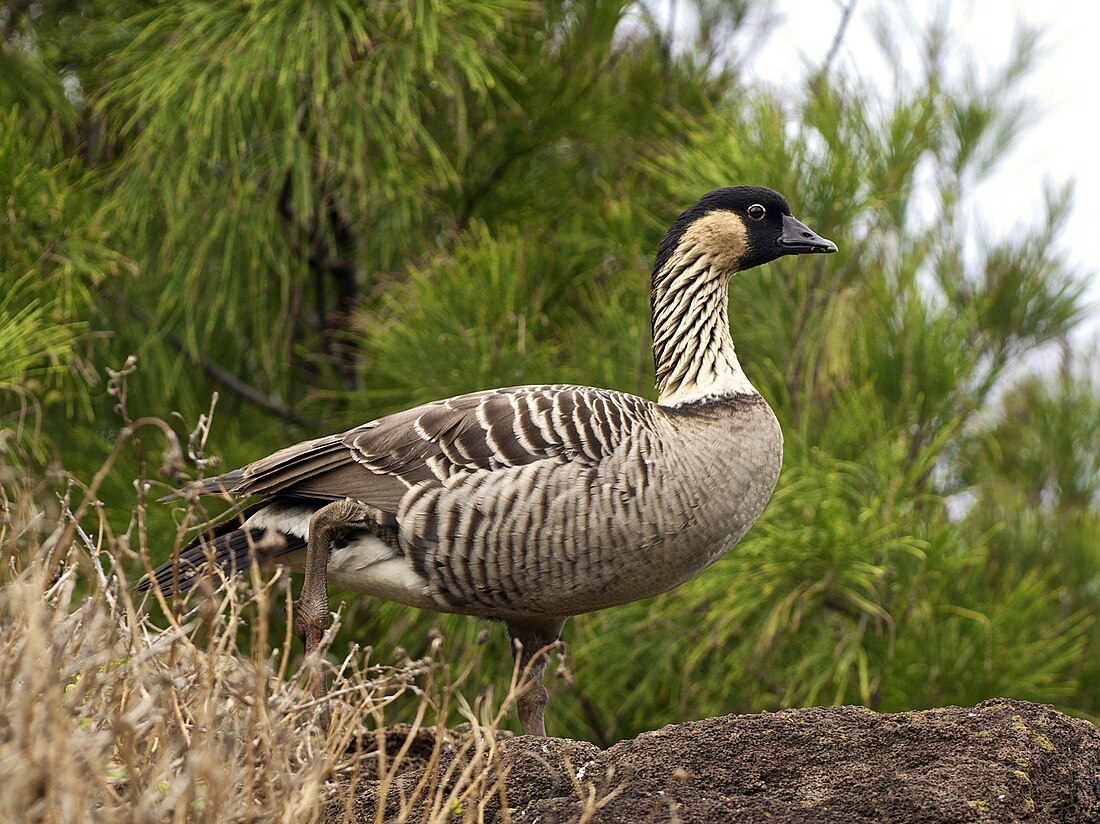The Nēnē, or Hawaiian goose (Branta sandvicensis) is a species of goose. It is found today on only three Hawaiian islands.[2] It gets its name from its soft call.
| Nene | |
|---|---|
 | |
| At Kilauea Point National Wildlife Refuge, Hawaii, USA | |
| Scientific classification | |
| Domain: | Eukaryota |
| Kingdom: | Animalia |
| Phylum: | Chordata |
| Class: | Aves |
| Order: | Anseriformes |
| Family: | Anatidae |
| Genus: | Branta |
| Species: | B. sandvicensis |
| Binomial name | |
| Branta sandvicensis (Vigors, 1833) | |
| Synonyms | |
| |

This is an unmistakable species, with its generally brown plumage (feathers) and darker head. Its strong toes have much reduced webbing (skin between the toes), an adjustment to the lava flows on which it breeds.[3] The Nēnē goes about on land much more than other water birds. When moulting (dropping old feathers and growing new ones), the Nēnē cannot fly, as do other geese, a factor which made it vulnerable to hunting.
The Nēnē was once among the most threatened waterfowl species around the world.[4] Once common hunting and predators brought to the islands such as mongooses, pigs and cats reduced the population to only 30 birds in the 1950s.[2] However, this species breeds well in captivity (zoos and bird parks), and has been successfully re-introduced. There are also good numbers in wild bird collections.
References
Wikiwand in your browser!
Seamless Wikipedia browsing. On steroids.
Every time you click a link to Wikipedia, Wiktionary or Wikiquote in your browser's search results, it will show the modern Wikiwand interface.
Wikiwand extension is a five stars, simple, with minimum permission required to keep your browsing private, safe and transparent.

